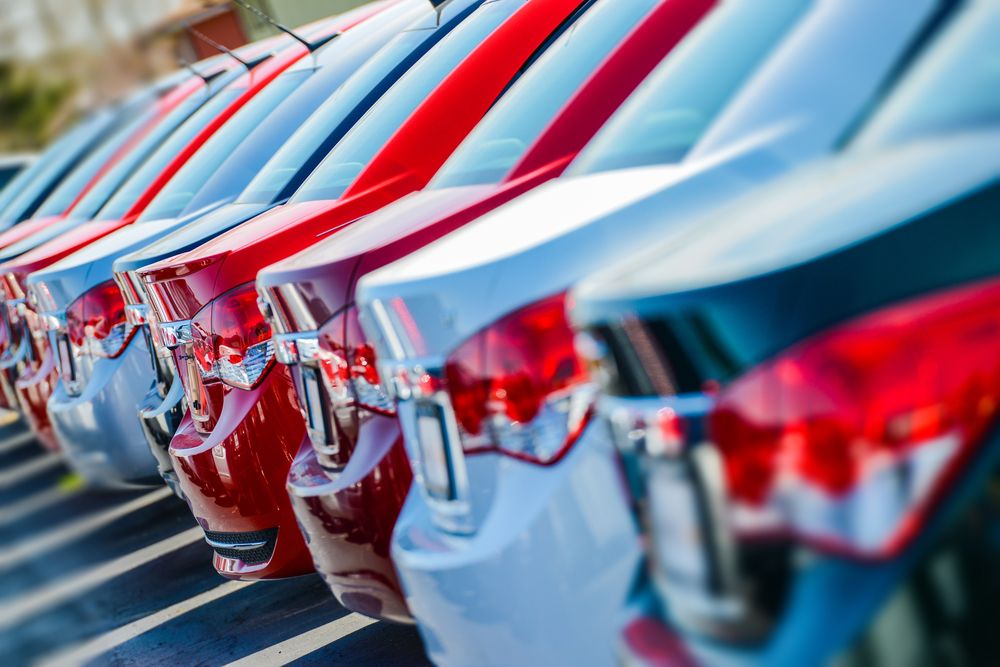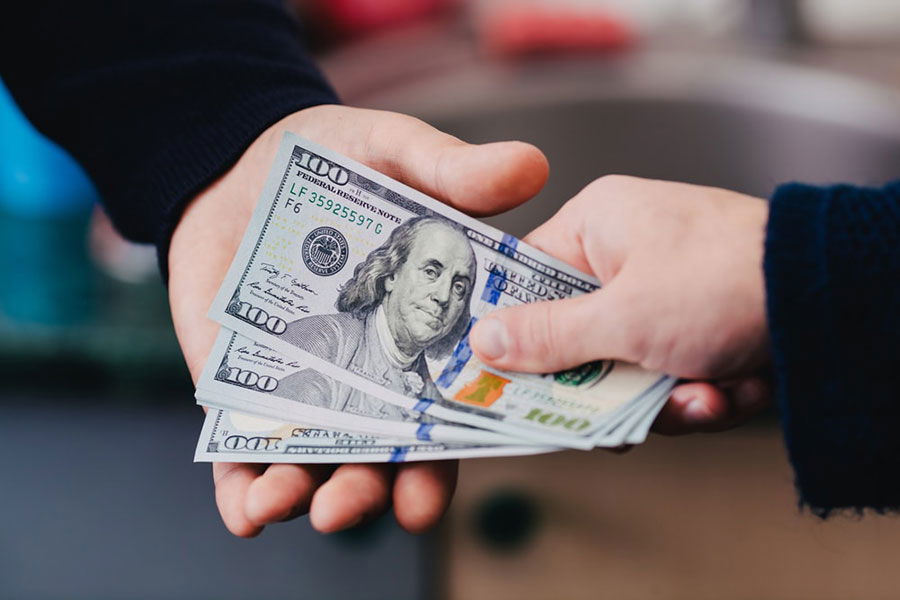Need a car but stuck with bad credit? You’re not alone. Millions of people rely on their car to get to work, pick up their kids, or handle everyday errands—but getting approved for a loan can feel impossible when your credit score is low.

You don’t need perfect credit to buy a car. With the right strategy, you can find a lender, get approved, and avoid sky-high interest rates. This guide breaks it all down step-by-step so you can get back on the road without wrecking your finances.
What to Expect From a Bad Credit Auto Loan
Getting approved for bad credit car loans is possible, but the terms often look very different from what borrowers with higher credit scores receive. Here’s what to expect:
- Higher interest rates: Lenders charge more to offset risk. Expect your rate to be significantly higher than someone with good credit.
- Stricter loan terms: You may face shorter loan lengths, higher monthly payments, or added fees. Always read the fine print before signing anything.
- Bigger down payment or cosigner required: Lenders might ask for more upfront cash or a cosigner to approve your application. This reduces their risk and increases your chances of approval.
Here’s a quick comparison of estimated APRs by credit score range:
| Credit Score Range | Estimated APR (Used Car) | Estimated APR (New Car) |
|---|---|---|
| 720 – 850 (Excellent) | 6.0% or lower | 5.5% or lower |
| 660 – 719 (Good) | 7.5% – 9.5% | 6.5% – 8.5% |
| 600 – 659 (Fair) | 11.0% – 14.0% | 10.0% – 13.0% |
| 300 – 599 (Poor) | 17.0% – 25.0%+ | 15.0% – 22.0%+ |
These rates are just estimates. Your actual APR will depend on the lender, your income, and the specific loan offer. The lower your credit score, the more important it is to compare multiple lenders before signing anything.
Best Places to Get a Car Loan With Bad Credit
You don’t need to walk into the first dealership you see and hope for the best. There are several types of lenders and financing options that work specifically with bad credit car loans. The key is knowing where to look and what to watch out for.
- Online lenders: Companies like Auto Credit Express and myAutoLoan work with borrowers who have low credit scores. These platforms let you compare offers from multiple lenders without stepping foot in a dealership.
- Local banks and credit unions: If you already have an account with a bank or credit union, start there. They may be more flexible with loan terms, especially if you’ve built a solid banking history.
- Dealership financing: Many dealerships offer financing for buyers with bad credit, often through partnerships with subprime lenders. But some also handle the loan in-house.
- Subprime lenders: These lenders focus on bad credit borrowers. While rates can be steep, they may approve you when others won’t.
- Buy Here, Pay Here dealerships: These dealers finance your loan directly and rarely run a credit check. ⚠️ This should be a last resort. Interest rates are extremely high, and missing a single payment could mean losing the car and still owing money.
How to Find a Dealership That Accepts Bad Credit
Not every dealership works with bad credit borrowers, and some are more trustworthy than others. Use these steps to find one that won’t waste your time—or your money.
Dealership Vetting Checklist
- Search online before visiting: Use websites like Cars.com or Autotrader and filter for dealerships that offer financing for bad credit. Check ratings and recent customer reviews.
- Ask about in-house financing: Dealerships with in-house financing are more likely to approve low credit applicants. Just make sure to compare their offer with outside lenders.
- Request terms in writing: Get a clear quote before agreeing to anything. Review the interest rate, loan term, monthly payment, and total cost. Don’t rely on verbal promises.
Finding the right lender or dealership can make the difference between getting a fair deal or being stuck with years of overpriced payments. Take your time and shop smart.
How High Interest Rates Can Destroy Your Budget
Bad credit car loans often come with high interest rates—and those rates can wreck your budget if you’re not careful.
Let’s break it down:
- Example: On a $15,000 loan with a 60-month term:
- At 8% APR, you’d pay about $3,200 in interest.
- At 21% APR, you’d pay over $8,800 in interest.
That’s a difference of $5,600, just from the interest rate alone.
To avoid overpaying:
- Shop around: Compare at least three loan offers before signing anything.
- Make a larger down payment: This reduces the loan amount and total interest paid.
- Choose the shortest term you can afford: Shorter terms come with lower total interest, even if the monthly payment is slightly higher.
- Check your credit first: A small improvement in your credit score can move you into a lower rate tier.
Credit Score Needed to Get a Car Loan
Lenders don’t just look at your credit score, but it’s still one of the biggest factors in loan approval and the interest rate you receive.
Here’s what you need to know:
- Hard inquiry: When a lender checks your credit report during an application, your score may dip slightly for a short time.
- Debt-to-income ratio: This shows how much of your monthly income goes toward debt payments. A lower ratio means you’re less of a risk.
Credit Score Breakdown
| Credit Score Range | Category | Loan Terms You Can Expect |
|---|---|---|
| 720 – 850 | Excellent | Best rates, low down payment, fast approval |
| 660 – 719 | Good | Competitive rates, flexible terms |
| 600 – 659 | Fair | Higher interest rates, limited lender options |
| Below 600 | Poor | Very high rates, stricter terms, may need cosigner or large down payment |
Even with a low credit score, you can still qualify for a loan—especially if you have steady income and minimal existing debt. Comparing lenders is key to finding the best possible offer for your situation.

How to Quickly Raise Your Credit Score Before Buying a Car
Improving your credit score—even slightly—can save you thousands on a bad credit car loan. Here’s how to boost it fast:
- Check your credit reports: Go to AnnualCreditReport.com and download all three credit reports for free.
- Dispute errors: Fix mistakes that may be dragging down your credit score. This includes accounts that aren’t yours, incorrect late payments, or outdated collections.
- Pay down balances: Focus on paying down high-interest debt and lowering your credit utilization ratio. Try to keep it under 30%, or even better, under 10%.
- Make every payment on time: Your payment history is the biggest part of your credit score. Set reminders or use autopay to stay on track.
- Don’t open new accounts: Avoid new credit applications in the months before your car loan. Each one triggers a hard inquiry.
- Add positive history: Consider a secured credit card, credit builder loan, or become an authorized user on someone else’s well-managed account.
If you need more help, check out our guide on how to clean up your credit report before applying.
Why a Bigger Down Payment Helps With Bad Credit Auto Loans
The more you can put down upfront, the better your loan terms will be. A bigger down payment lowers the amount you borrow and signals to lenders that you’re serious.
Benefits of a larger down payment:
- Lower interest rate: Reduces lender risk, which may get you a better APR.
- Smaller monthly payment: You’re financing less, so your monthly costs drop.
- Less risk of going upside down: Cars lose value fast. A larger down payment helps you avoid owing more than it’s worth.
- Better loan approval odds: Lenders are more likely to approve borrowers with skin in the game.
Bonus tip: If you have a trade-in, apply its value toward your down payment to increase your equity even more.
Should You Use a Cosigner for a Bad Credit Car Loan?
A cosigner can help you get approved or lower your car payment, but it comes with shared risk. Use this option carefully.
Pros and Cons of Using a Cosigner
| Pros | Cons |
|---|---|
| Increases chances of approval | Cosigner is responsible if you miss payments |
| May lower your interest rate | Missed payments hurt both of your credit scores |
| Can reduce your monthly payment | Can strain personal relationships |
Cosigning can work—but only if you’re confident you can handle the loan responsibly. If not, the financial damage affects both of you.
Final Checklist for Buying a Car With Bad Credit
Use this checklist to stay organized and avoid costly mistakes:
- Check your credit score: Know where you stand before you apply.
- Set a budget: Determine how much you can afford to spend on a car, including loan payments, insurance, and maintenance.
- Compare lenders: Look at interest rates, terms, and total loan costs.
- Get preapproved: Strengthens your position at the dealership.
- Save for a down payment: Aim for at least 10%–20% if possible.
- Choose a reliable car: Avoid luxury features that break your budget.
- Avoid loans longer than 60 months: You’ll pay more in interest over time.
- Make your payments on time: Use the loan to rebuild your credit.
Bad credit doesn’t have to mean bad decisions. Be strategic, and you can drive away with a deal that actually works for you.
Final Thoughts
Buying a car with bad credit isn’t easy, but it’s far from impossible. The key is preparation—know your credit score, compare offers carefully, and stay realistic about what you can afford.
A reliable car can help you get to work, rebuild your credit, and move forward financially. Take your time, avoid rushed decisions, and focus on getting a loan that fits your budget—not just your immediate need.
Frequently Asked Questions
Can I refinance my bad credit car loan later to get a better rate?
Yes, refinancing is an option once your credit score improves. If you’ve made on-time payments for at least 6 to 12 months, you may qualify for a lower interest rate through a new lender. Just make sure there are no prepayment penalties on your current loan before refinancing.
Will a car loan help improve my credit score?
It can, as long as you make your payments on time. An auto loan adds to your credit mix and payment history—both important parts of your credit score. Over time, consistent payments can help you build a stronger credit profile.
How much should I spend on a car if I have bad credit?
A good rule of thumb is to keep your total monthly car expenses—including loan payment, insurance, and maintenance—under 15% of your monthly take-home pay. Choosing a reliable used car can help keep costs low while still meeting your needs.
Is leasing a car a better option if I have bad credit?
Leasing is usually harder to qualify for with bad credit. It often requires a higher credit score and a larger security deposit. In most cases, buying a used car with a short-term loan is a more realistic and cost-effective path if your credit is low.
Will I need proof of income to get approved for a bad credit auto loan?
Yes, most lenders will ask for recent pay stubs, bank statements, or tax returns to confirm your income. They want to see that you have enough consistent income to make your monthly payments. Having documentation ready can speed up the approval process.




